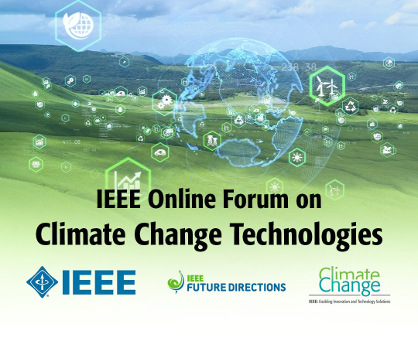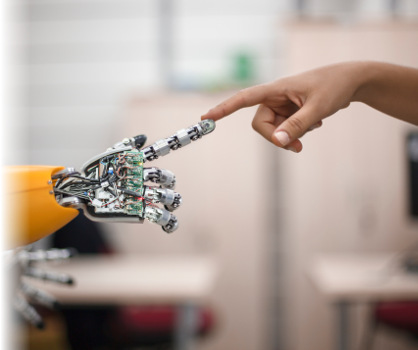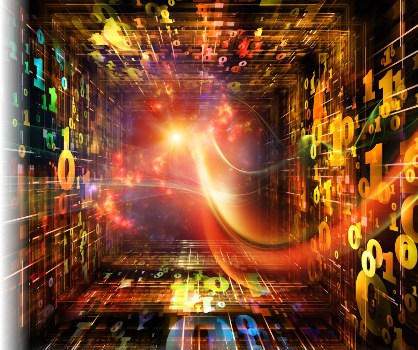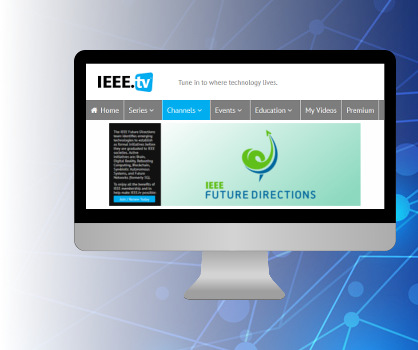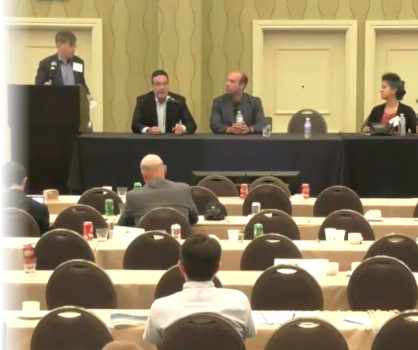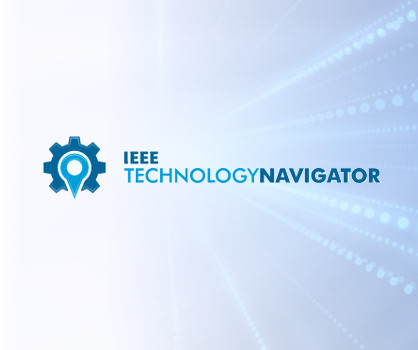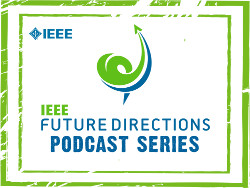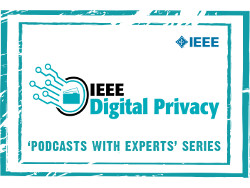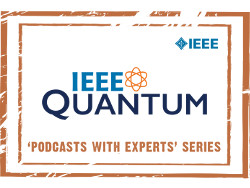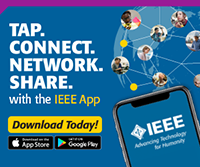New Technology Connections: Future Directions
New Technology Connections is your resource to emerging technologies within IEEE. The IEEE Future Directions Committee has identified the technologies on this page as primary focus areas and has established them as formal initiatives to engage IEEE. For each initiative, you will find a wealth of knowledge, resources, and opportunities to participate.
Visit each featured portal to access upcoming events, news articles, technical publications, related standards, and academic programs. To get involved, please join the IEEE technical communities available on the portals below and receive the Future Directions Newsletter. To learn more, contact Future Directions.
New initiatives
Get involved in the current IEEE Future Directions Initiatives:
 |
Digital Privacy - IEEE Digital Privacy is an IEEE-wide effort dedicated to champion digital privacy for individuals. The initiative advocates a user-centric perspective—considering privacy needs of the individuals rather than the security of data, products, and organizations—addressing user privacy control and promoting privacy at the outset of product and service development. IEEE Digital Privacy envisions a future in which the capability exists to enable any individual around the world to privately maintain presence, data, identity, and dignity online. |
5G/6G Innovation Testbed - The IEEE 5G/6G Innovation Testbed is a cloud-based, end-to-end 5G network emulator that enables testing and experimentation of 5G products and services. Secure, easily-accessible and “always on,” this platform brings 5G network testing and development to your fingertips and paves the way for speedier and smoother real world deployments. |
|
 |
Low-Earth-Orbit (LEO) Satellites & Systems (SatS) - The space sector has evolved critically over the last decade. New technological developments are emerging, such as standardized launch interfaces and satellite buses, and satellites are on their way to a quasi-off-the-shelf technology ready for automated mass production. IEEE LEO SatS intends to coordinate the consolidation and expansion of existing distributed LEO SatS technical and educational activities using IEEE's capabilities and long-standing presence in the field. |
 |
Metaverse - The boundaries are fading between the physical and cyberspace worlds. The Metaverse is a world built upon the technologies of the evolving digital transformation where interactions occurring in the metaverse can affect entities in the physical space. Continuing the learning and work from IEEE Digital Reality, this initiative seeks to lead the discussion on the Metaverse's technological challenges and foster its application. |
 |
Public Safety Technology - The IEEE Public Safety Technology Initiative is dedicated to becoming the global center of excellence for public safety agencies, suppliers, practitioners, researchers, and all industry participants to discuss and exchange ideas on how emerging technologies can help public safety personnel be more effective in their work and support their sustained health and wellness. The initiative identifies existing relevant technologies, researches new opportunities, launches new activities, and engages with public safety entities for the betterment of all industry stakeholders. |
 |
Quantum - IEEE Quantum serves as IEEE's leading community for all projects and activities on quantum technologies. The initiative has developed a project plan to address the current landscape of quantum technologies, identify challenges and opportunities, leverage and collaborate with existing initiatives, and engage the quantum community at large. |
 |
Smart Lighting - IEEE Smart Lighting is a cross-disciplinary effort that unites and integrates IEEE expertise from various horizons to advance the science and technology of the smart lighting system. This effort will help lead the convergence of the lighting industry and the ICT industry toward the path of the Lighting 4.0 era. |
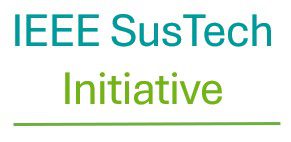 |
SusTech - The IEEE SusTech Initiative, formerly named Climate Technologies Sustainability Initiative, in collaboration with the TA Climate Change Program and SA’s Planet Positive 2030, seeks to contribute technical expertise and solutions to address sustainability challenges, including climate change. |
 |
Telepresence - IEEE Telepresence seeks to bring together stakeholders and develop a community around advancing telepresence technology which enable a user's remote presence at a different physical location: a) feeling as if being there, and b) having a similar effect as if being there—in appearance to others and in effectual action, via telerobotics. |
 |
Wireless Power Technologies (WPT) - IEEE WPT covers the interdisciplinary field of wirelessly supplying energy to electrical devices and systems ranging from exploratory R&D to mainstream products. IEEE WPT is bringing together researchers and industry professionals in a global setting to tackle technological challenges, develop corresponding standards, and provide education to advance WPT technology for humanity. |
IEEE Future Directions events
- 2023 IEEE Online Forum on Climate Change Technologies (OFCCT), 23-26 October 2023, Virtual
- Workshop on Current Trends and Emerging Technologies in Public Safety and Security @ 2023 IEEE Future Networks World Forum (FNWF), 13-15 November 2023, Baltimore, MD, USA
- 2024 IEEE World Forum on Public Safety Technology (WFPST), 14-17 May 2024, Washington, D.C., USA
IEEE Future Tech Forum

The IEEE Future Tech Forum, organized by IEEE Future Directions, is a series of audience-engaging roundtable discussions with a focus on leading technologies, frontline issues, crucial challenges, and societal impacts; with global subject-matter experts and thought leaders in industry, academia, and government.
Visit the IEEE Future Tech Forum website to learn more, register for upcoming sessions, and access previous sessions on-demand.
Subscribe to the IEEE Future Directions Newsletter
Participants of current and graduated IEEE Future Directions technical communities receive this newsletter automatically. If you wish to receive the newsletter in your inbox, please subscribe to one or more of the technical communities listed on this page.
IEEE Future Directions considers the reflection of technology through the lens of social implications a key tenant of its work as it incubates and promotes technologies. IEEE Technology Policy & Ethics features timely technical, policy, ethical, social, and governmental, but not political, commentary related to emerging technologies and advancements. Read these articles in the IEEE Future Directions Newsletter.
2023
2022
2020
2019
2017
For additional articles on emerging technologies, visit the Future Directions Feature Articles page.
IEEE Future Directions podcasts
IEEE Future Directions interviews top subject-matter experts in the field through its Q&A podcast series.
IEEE Future Directions Resource Center
The IEEE Future Directions Resource Center offers a selection of products for sale, including newsletters, videos, webinars, and white papers. IEEE members and technical community subscribers receive discounts on all products. Through the Resource Center, you will get a glimpse into the various Future Directions initiatives and their wide range of offerings.
IEEE Future Directions Committee
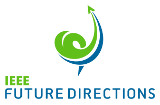 The IEEE Future Directions Committee (FDC), in association with Societies, Councils, and OUs, anticipates and determines the direction of existing, new, and emerging technologies and spearheads their investigation and development by IEEE. Taking a holistic view, the FDC emphasizes new, emerging technical areas and drives them to maturity within the IEEE infrastructure. Additionally, the FDC serves as a liaison to and fosters cooperative efforts among Societies, Councils, and industry to develop new products and services in emerging topics.
The IEEE Future Directions Committee (FDC), in association with Societies, Councils, and OUs, anticipates and determines the direction of existing, new, and emerging technologies and spearheads their investigation and development by IEEE. Taking a holistic view, the FDC emphasizes new, emerging technical areas and drives them to maturity within the IEEE infrastructure. Additionally, the FDC serves as a liaison to and fosters cooperative efforts among Societies, Councils, and industry to develop new products and services in emerging topics.
The primary working objectives of the IEEE Future Directions Committee:
- Incubates emerging technologies and new applications of current technologies
- Identifies opportunities to engage the engineering community and the general public
- Works with IEEE members and staff to focus on emerging technologies through technical, professional, and educational activities
- Serves as a catalyst for new conferences, publications, standards, educational products, forums, white papers, grants, and projects to support new technologies
IEEE Technology Roadmaps Committee
 The IEEE Technology Roadmaps Committee (IRC) works to provide guidance and infrastructure to support technology roadmap activities across IEEE. IRC, as supported by IEEE Future Directions, is a valued resource to any society or community as it develops and promotes its technology roadmap as a critical resource between research and industry.
The IEEE Technology Roadmaps Committee (IRC) works to provide guidance and infrastructure to support technology roadmap activities across IEEE. IRC, as supported by IEEE Future Directions, is a valued resource to any society or community as it develops and promotes its technology roadmap as a critical resource between research and industry.
The growing interest in technology roadmaps spans a wide range of IEEE organizational units. IRC seeks to enable the success of IEEE’s technology roadmap activities by leveraging the expertise of experienced roadmap developers to create tools and templates while documenting a high-level roadmap development process to assist new roadmaps.
Graduated initiatives
These initiatives had their start within IEEE Future Directions and have graduated. Some have continued as self-managed communities, and others have taken a different path.
 |
Big Data - Big data is much more than just data bits and bytes on one side and processing on the other. IEEE, through its Cloud Computing Initiative and multiple societies, took the lead on the technical aspects of big data. To provide increased value, IEEE provided a framework for collaboration throughout IEEE. IEEE launched a new initiative focused on big data. One of the products from the initiative is the successful IEEE DataPort. |
 |
Blockchain - More than Cryptocurrency, blockchain is a technological foundation to a new way of conducting transactions, securing networks, and recording the validity and origin of data. Blockchain will allow a new perspective on how humans interact to society's challenges; touching upon everything from financial transactions, energy trading, carbon emission trading, protection and easy access to healthcare records, to the protection of the valued assets of corporations and nation states. |
 |
Brain - This initiative is dedicated to advancing technologies that improve the understanding of brain function, revolutionizing current abilities to reverse engineer neural circuits in both the central and peripheral nervous systems, and developing new approaches to interface the brain with machines for augmenting human-machine interaction and mitigating effects of neurological disease and injury. |
 |
Cloud Computing - This has become a scalable service consumption and delivery platform in the modern IT infrastructure. IEEE is advancing the understanding and use of the cloud computing paradigm, which currently has a significant impact on the entire information and communications ecosystem. |
 |
Cybersecurity - Through outreach projects, workshops, experiments, and challenge competitions, the IEEE Cybersecurity Initiative builds on IEEE’s long-standing and world-leading technical activities in cybersecurity and privacy to actively engage, inform, and support members, organizations, and communities involved in cybersecurity research, development, operations, policy, and education. |
 |
Digital Reality - This initiative serves to enable the coming Digital Transformation through collaboration among technologists, engineers, regulators, and ethicists. The Digital Transformation is fueled by advances in sensors and actuators, artificial intelligence (AI), and machine learning (ML). By leveraging these technologies and others, such as augmented reality (AR), virtual reality (VR), and Digital Twins, the line between the physical world and the digital world will be increasingly less distinct. |
 |
Future Networks - IEEE Future Networks is dedicated to bringing together researchers, scientists, and engineers from industry, academia, and governments around the world to solve the challenges associated with the development and deployment of next-generation network infrastructure. The IEEE Future Networks initiative will be a collaborative effort, bringing interdisciplinary exchange from a wide range of professional expertise and practical application knowledge. |
 |
Internet of Things (IoT) - IoT is a self-configuring and adaptive system consisting of networks of sensors and smart objects whose purpose is to interconnect "all" things, including everyday and industrial objects, in such a way as to make them intelligent, programmable, and more capable of interacting with humans. |
 |
Life Sciences - The overall objective is to make IEEE a major and recognized player in the life sciences, in particular in the disciplines that are at the intersection between the organization's traditional fields—electrical engineering, computer engineering, and computer science—and the life sciences. |
 |
Rebooting Computing - IEEE seeks to rethink the computer, "from soup to nuts," including all aspects from device to user interface. This group works from a holistic viewpoint, taking into account evolutionary and revolutionary approaches. |
 |
Smart Cities - IEEE experts will work with local government leaders and city planners around the world to explore the issues and address what's needed to prepare for the ever-increasing urban population growth, including engaging and interacting with local inhabitants to increase awareness of their urban environment, leading to the formation of smart cities. |
 |
Smart Grid - The "smart grid" has come to describe a next-generation electrical power system that is typified by the increased use of communications and information technology in the generation, delivery, and consumption of electrical energy. |
 |
Software Defined Networks (SDN) - SDN and NFV (Network Functions Virtualization) are creating the conditions to reinvent network architectures. This is happening first at the edge of the network where "intelligence" has already started migrating, and where innovation is more urgently needed to overcome the "ossification" by improving networks and services infrastructure flexibility. |
 |
Sustainable ICT - Sustainable Information and Communications Technology is a key driver of sustainability when green metrics (energy consumption, atmospheric emissions, e-waste, life cycle management) are effectively coupled with its positive socio-economic impacts. IEEE is focused on achieving sustainability and promoting its awareness. |
 |
Transportation Electrification - IEEE seeks to accelerate the development and implementation of new technologies for the electrification of transportation which is manifested in the electric vehicles (EV) of today and the future. |
New Technology proposal list
Read the IEEE Future Directions Blog by Roberto Saracco for daily insight and observations on emerging technologies, trends, and their implications.
IEEE Future Directions offers a comprehensive collection of learning opportunities on a variety of groundbreaking, cutting-edge technologies through webinars, podcasts, courses, and more.
The General Data Protection Regulation (GDPR) is a regulation by European Union (EU) authorities to strengthen and unify data protection for EU citizens and individuals within the European Union. The primary aim of GDPR is to give EU citizens and residents control over their personal data. GDPR went into effect 25 May 2018.
For more information, visit the IEEE GDPR page.



